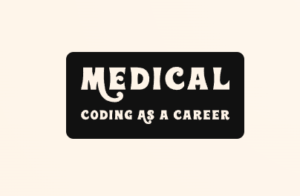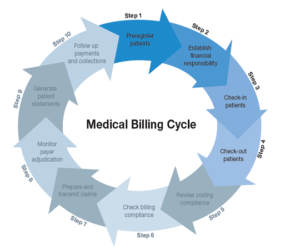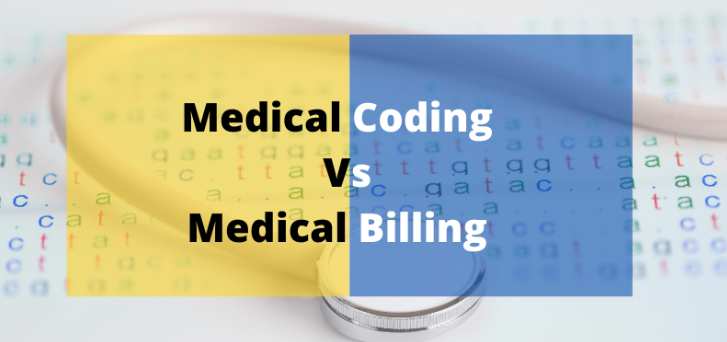Medical Billing vs Medical Coding – What’s the Difference ?
Medical Billing vs Medical Coding
Medical Billing vs Medical Coding – What’s the Difference?

While both fields are closely related and often overlap, they serve distinct purposes and require different skill sets.
If you’re considering a career in healthcare administration or exploring ways to specialize in the medical field, understanding the differences between medical billing and medical coding is crucial.
In this article, we’ll explore the key differences between medical billing and medical coding, their roles in healthcare, job responsibilities, career opportunities, and how they work together to ensure accurate payment and patient care.
✅ What is Medical Coding?

Medical coding involves translating healthcare services, procedures, and diagnoses into standardized codes used for billing, insurance claims, and medical documentation.
Medical coders review patient records and assign the appropriate codes using standardized coding systems like:
- ICD-10-CM – International Classification of Diseases, 10th Edition, Clinical Modification
- CPT – Current Procedural Terminology
- HCPCS – Healthcare Common Procedure Coding System
Responsibilities of a Medical Coder
Reviewing medical records for accuracy and completeness
Assigning appropriate ICD-10, CPT, and HCPCS codes
Ensuring compliance with federal regulations and insurance requirements
Working with healthcare providers to clarify documentation
Updating coding guidelines as per new industry standards
🔹 Example of Medical Coding:
- A patient visits a doctor for a sore throat.
- The doctor diagnoses the patient with acute pharyngitis.
- The coder assigns the following codes:
- ICD-10 Code: J02.9 – Acute pharyngitis, unspecified
- CPT Code: 99213 – Office visit for an established patient
Key Skills for Medical Coders:
Attention to detail
Knowledge of medical terminology and anatomy
Understanding of coding guidelines and insurance policies
Strong analytical and problem-solving skills
➡️Job of a Medical Coder: A Complete Overview
✅ What is Medical Billing?

Medical billing involves submitting and following up on insurance claims and payments for healthcare services.
The role of a medical biller is to ensure that healthcare providers are accurately reimbursed for the services they provide.
🔹 Responsibilities of a Medical Biller:
Creating and submitting insurance claims
Verifying patient insurance coverage
Following up on denied or rejected claims
Posting payments and reconciling balances
Handling patient billing inquiries and disputes
🔹 Example of Medical Billing:
- A patient receives treatment for acute pharyngitis.
- The coder assigns the correct ICD-10 and CPT codes.
- The biller submits the coded claim to the insurance company.
- The insurance company processes the claim and reimburses the healthcare provider.
- The biller follows up if the claim is denied or underpaid.
Key Skills for Medical Billers:
Strong understanding of insurance policies
Knowledge of billing software and claim processing
Communication and customer service skills
Ability to handle payment disputes and claims denials
📊 Key Differences Between Medical Coding and Medical Billing
| Aspect | Medical Coding | Medical Billing |
|---|---|---|
| Purpose | Convert medical services and diagnoses into standardized codes | Submit claims and collect payments for services |
| Main Tools | ICD-10, CPT, HCPCS coding systems | Billing software, insurance claim portals |
| Goal | Ensure accurate documentation of patient care | Ensure proper payment for services provided |
| Focus | Medical record accuracy | Payment accuracy |
| Interaction | Works with healthcare providers and auditors | Works with insurance companies and patients |
| Skills Required | Medical terminology, anatomy, coding systems | Insurance claims, payment processing, customer service |
| Certification | CPC®, CCS®, CIC® | CPB®, CMRS® |
| Average Salary | $55,000–$75,000/year | $45,000–$65,000/year |
🚀 How Medical Coding and Medical Billing Work Together
Medical coding and billing are two sides of the same process. Here’s how they work together:
- Patient Visit – A patient visits a healthcare provider for a medical service.
- Medical Coding – The coder reviews the medical record and assigns the correct codes (ICD-10 for diagnosis and CPT/HCPCS for procedures).
- Medical Billing – The biller uses the codes to create a claim and submit it to the insurance company.
- Payment Processing – The insurance company processes the claim and reimburses the provider.
- Reconciliation – The biller follows up on denied claims and ensures correct payment.
Example:
- A patient receives a chest X-ray.
- The coder assigns CPT code 71020 for the chest X-ray and ICD-10 code R91.8 for an abnormal finding.
- The biller submits the claim to the insurance company.
- If the claim is denied, the biller works with the coder and provider to resolve the issue.
💼 Career Paths in Medical Coding and Billing
🔥 Medical Coding Career Options:
- Certified Professional Coder (CPC®) – Focus on outpatient coding
- Certified Inpatient Coder (CIC®) – Specializes in inpatient coding
- Certified Risk Adjustment Coder (CRC®) – Focus on coding for risk adjustment
🔥 Medical Billing Career Options:
✅ Certified Professional Biller (CPB®) – Focus on insurance claim submission and payment processing
✅ Medical Reimbursement Specialist (CMRS®) – Focus on insurance reimbursement and collections
💲 Salary Comparison
According to the AAPC (American Academy of Professional Coders):
- Medical Coders: $55,000–$75,000/year (higher for specialized coders)
- Medical Billers: $45,000–$65,000/year (higher for experienced billers)
🔍 Should You Choose Medical Coding or Medical Billing?
Choosing between medical coding and billing depends on your strengths and career goals:
✔️ Medical Coding – If you enjoy working with data, medical records, and detailed information, coding may be the best fit.
✔️ Medical Billing – If you prefer working with people, handling payments, and resolving insurance issues, billing may be the right choice.
🏆 Conclusion -Medical Billing vs Medical Coding
Medical coding and medical billing are both critical for the healthcare revenue cycle. While coding focuses on accurately documenting diagnoses and procedures, billing ensures that healthcare providers are reimbursed for their services.
Specializing in either medical coding or billing can lead to a stable and rewarding career in the healthcare industry.
If you have a strong eye for detail and enjoy working with medical records, coding may be your ideal path.
If you prefer working with insurance companies and financial systems, billing might be the better fit.
Regardless of which path you choose, both medical coders and billers play essential roles in ensuring the efficiency and financial health of the US healthcare system.

